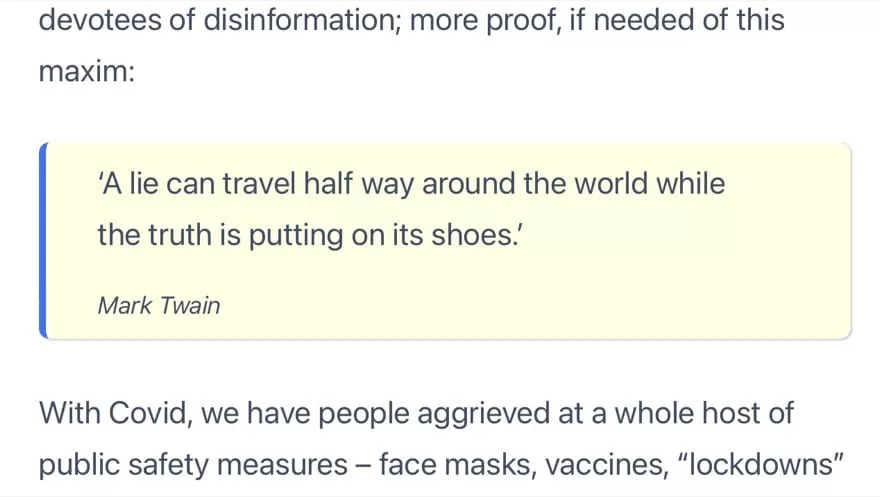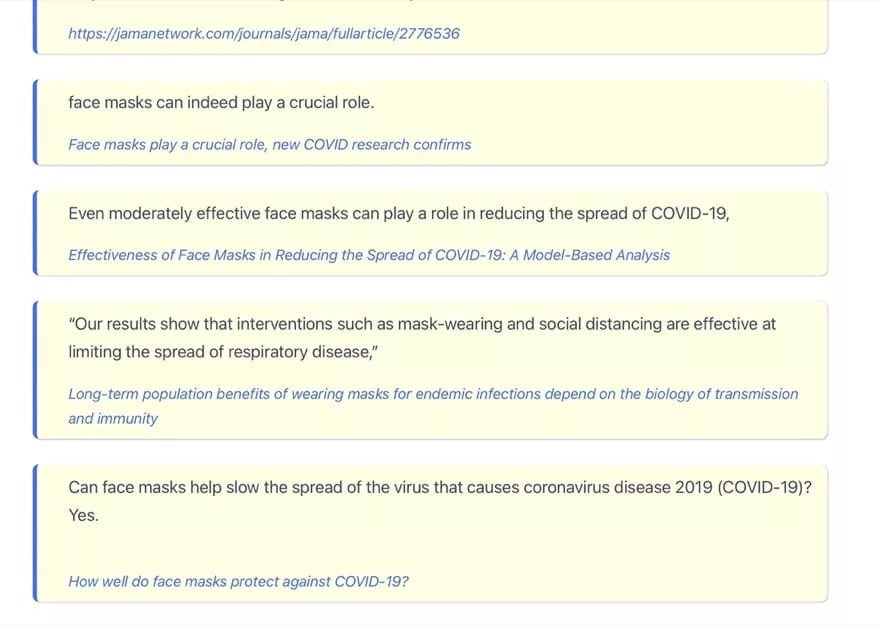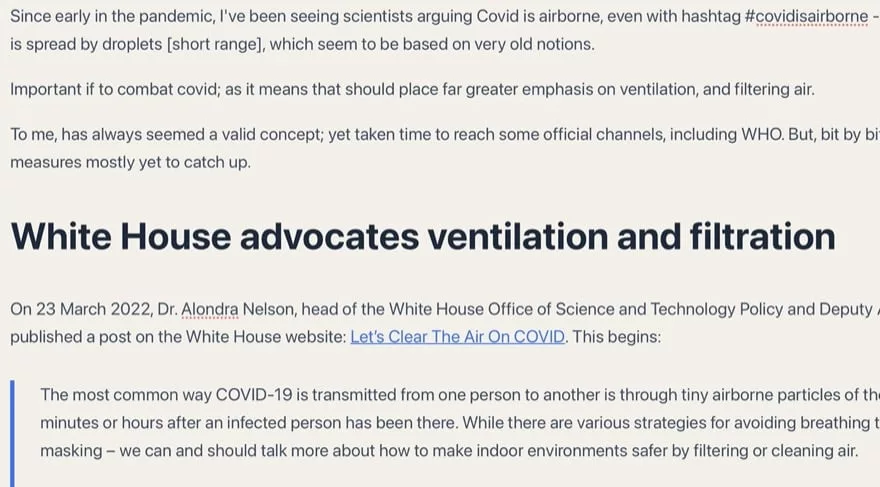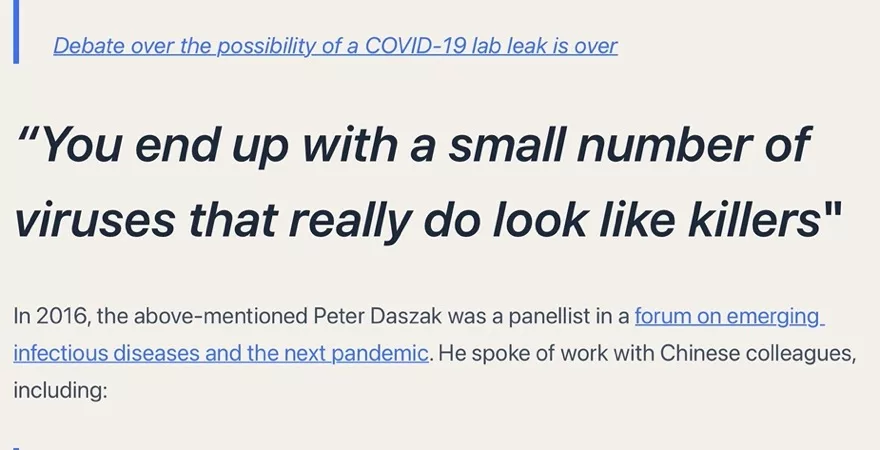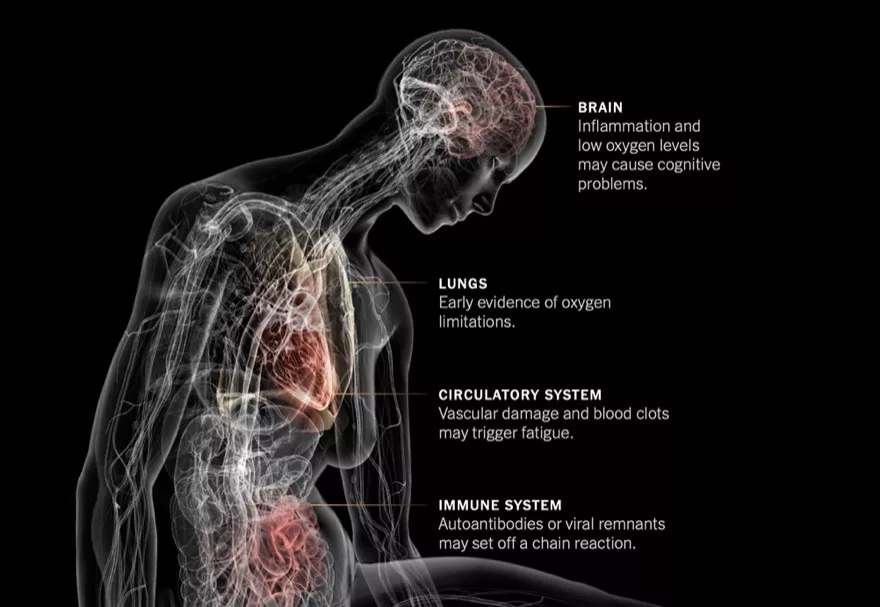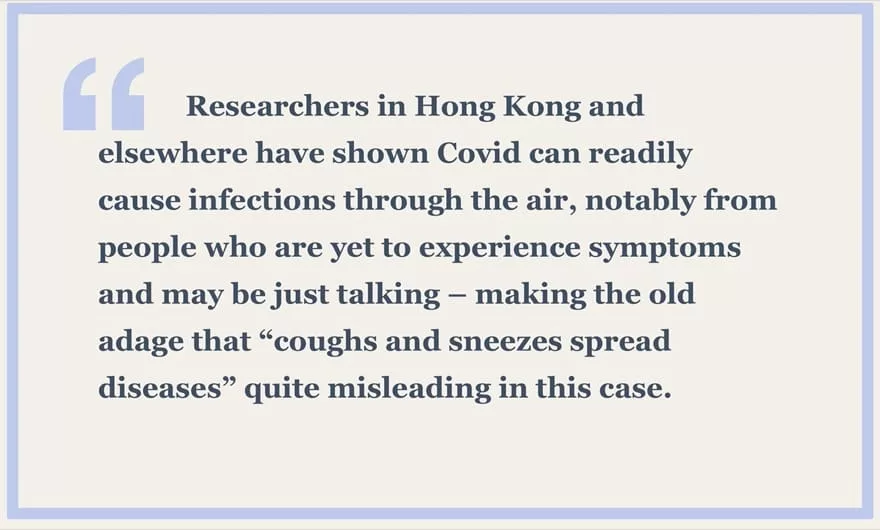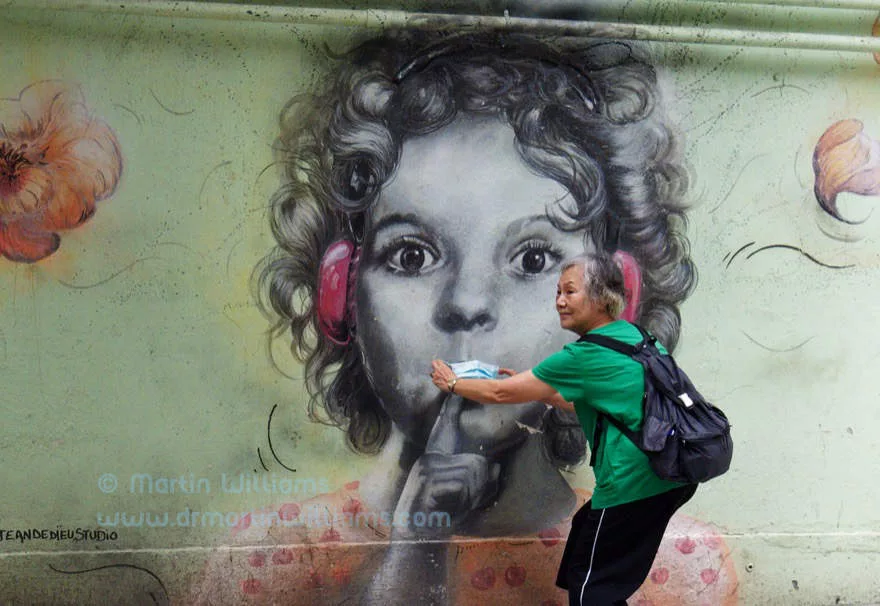Scientifically, we’ve learned a lot about Covid and ways to combat it, even developing vaccines that greatly reduce the risk of death. Yet Covid remains an issue, no matter how much we might wish it gone.
On 1 February 2020, as the coronavirus yet to be named Covid was starting to spread, Andrew Noymer, an epidemiologist at the University of California who studies infectious diseases, tweeted, “Duck tape your underpants. 2020 is going to be a wild ride.”
And what a wild ride 2020 proved to be, with covid rapidly becoming a pandemic and – according to the worldometer website – causing 1,954,817 deaths by 31 December 2020. Not that the wild ride ceased at the end of 2020. For Covid continues, with the official death toll now over 6.3 million, and still rising.
Even this figure likely belies the true toll: a study published in The Lancet estimated that from 1 January 2020 to 31 December 2021, 18·2 million people died worldwide because of the Covid pandemic.
Scientifically, we’ve learned a lot about Covid and ways to combat it, even developing vaccines that greatly reduce the risk of death. Yet Covid remains an issue, no matter how much we might wish it gone.
Covid responses beset by fuzzy thinking
Worldwide, responses to Covid vary greatly, beset by fuzzy thinking, and with humans also prioritising economic growth, retaining positions of power and so forth. Meanwhile, like a relentless sci-fi automaton, Covid is set on its goal: “Must … infect … more humans….”
At one end of the Covid response spectrum, there are countries like Australia, Denmark and the UK, where politicians are aiming for acceptance of Covid as just another disease. Yet even with widespread vaccinations, this results in high levels of long Covid, which is an umbrella term for a mix of chronic conditions, including accelerated brain aging. This in turn means people unable to work, or with reduced efficiency, in turn impacting businesses: in April, the Institute for Public Policy Research forecast the UK economy faces a £8bn ($10bn) a year hit due to the government lacking plans for long-Covid.
Along with this widespread handicapping of society, deaths from Covid are still occurring at rates that would have grabbed headlines a couple of years ago. On 29 May, Twitter handle dr tom – evidently by a medic in Australia, where Covid is now the leading cause of death, remarked, “Let’s face it, we‘re not living with COVID, we’re just tolerating a lot of death.”
Hong Kong’s anti-Covid measures have become more balanced, but still with oddities like quarantine for all on arrival, campsites and barbecue facilities closed even while bars are open, that are unsupported by science, and significantly dampen the economy along with quality of life.
China’s “Shanghai strategy” and the pneumonic plague
Then, at the other end of the spectrum, there’s mainland China, which especially in Shanghai seems intent on achieving zero Covid or bust. While residents are confined to homes or quarantine camps, squads of hazmat suited workers spray disinfectant on surfaces ranging from apartment interiors, through food packages, to airport aprons. This may all appear splendidly proactive, yet Covid spreads mainly by airborne transmission.
This “Shanghai strategy” echoes and was perhaps inspired by China’s response to a pneumonic plague that impacted the northeast in 1910-1911, killing around 60,000 people. As outlined in an article on the CNN website, measures included specially constructed quarantine hospitals, mask wearing ordinances, and travel restrictions. These effectively contained and suppressed the epidemic.
While there are similarities to anti-Covid measures, a huge difference is that there is now a global pandemic: even if a place achieves zero Covid, the virus will return if it’s not sealed off from the outside world.
Another issue facing all countries is that, while there were hopes that vaccination and/or infection could confer lasting immunity, and the coronavirus might become less dangerous, it turns out that reinfections are relatively common, with each perhaps harming rather than boosting the immune system – making “herd immunity” through infection just a fanciful myth – and Omicron appears “milder” at least partly thanks to better immune responses in vaccinated or previously infected people.
Plus, on 27 May, Professor Kei Sato of the University of Tokyo reported on a study of two new variants: “BA.4 & BA.5 variants seem to be more contagious and pathogenic [able to cause disease] than BA.2 variant.”
Add cases of hepatitis in children, and outbreaks of monkeypox in several places worldwide – which may be linked to Covid infections impacting the immune system – and it’s clear that we are not back to pre-Covid normality. Instead, this is a new abnormal.
Face masks and clean indoor air
Hence, face masks remain important for reducing transmission, with better quality masks advisable if you figure there is a higher chance of rebreathing other people’s air. The risk of transmission is lower outdoors, and in well ventilated places.
Indoors, HEPA filters can reduce amounts of airborne pathogens such as Covid, and disease experts like Professor Trish Greenhalgh, Professor of Primary Care Health Sciences at the University of Oxford, advocate a shift towards emphasising clean indoor air, along with clean drinking water.
This surely seems common-sense; and even in 2020, Japan recognised ventilation and air filtration as the key defence against Covid. Yet clean air seems a low priority in too many places, including Hong Kong. This is perhaps partly because of deep-rooted beliefs in diseases being caused by germs amidst surface dirt, and outdated notions of diseases borne in droplets that travel a couple of metres at most.
While we mostly take clean drinking water for granted, clean water advocates formerly faced resistance, including in Hong Kong. Though concerns were expressed about the filthy sewers and more during the late 19th century, several officials and businessmen resisted costly improvements, and it took a severe pandemic of bubonic plague to prompt work on better sanitation – including by adopting recommendations from engineer Osbert Chadwick, son of Edwin Chadwick, who had pioneered clean water supplies in the UK.
Now, Hong Kong similarly has the opportunity to improve indoor air flows and air quality in apartment blocks, malls, schools and office towers – maximising health, while minimising Covid.
[[can but dream!!!]]
Written for the South China Morning Post; published as Covid-19 persists amid puzzling hepatitis cases and monkeypox outbreaks – welcome to the new abnormal
References
Duck Tape
Noymer https://www.faculty.uci.edu/profile.cfm?faculty_id=5373
Worldometer: https://www.worldometers.info/coronavirus/worldwide-graphs/#total-deaths
[on graph, move mouse to 31 Dec 2020]
Estimating excess mortality https://www.thelancet.com/journals/lancet/article/PIIS0140-6736(21)02796-3/fulltext
Bergstrom sick of shit: https://twitter.com/danarubinstein/status/1527477458471092229
Living with covid for countries: just “living with covid” and the country names in google
Brain aging: https://theconversation.com/severe-covid-is-equivalent-to-20-years-of-ageing-new-study-182341
Long covid and UK economy: https://uk.finance.yahoo.com/news/uk-economy-long-covid-health-inequalities-083952206.html
Living w covid, Dr Tom [[Tom Solano I think] https://twitter.com/stuperbug/status/1530789482378960896
`Covid now the leading cause of death in Aus: https://www.crikey.com.au/2022/05/30/6000-australians-died-covid-this-year/
Disinfecting homes: https://www.insider.com/shanghai-lockdown-health-workers-spray-disinfectant-in-peoples-home-2022-5
Cold chain food: https://www.chinadaily.com.cn/a/202011/10/WS5fa9d0dca31024ad0ba8a73b.html
Disinfecting airport apron: I’ve seen video, also photo: https://asiatimes.com/2022/05/china-restricts-travel-abroad-to-keep-money-at-home/
Covid is airborne: https://www.thelancet.com/article/S0140-6736(21)00869-2/fulltext
Manchurian plague: https://edition.cnn.com/2020/04/18/china/great-manchurian-plague-china-hnk-intl/index.html
Reinfections: https://www.nature.com/articles/d41586-022-00438-3
Omicron “milder” reasons: https://www.nature.com/articles/s41577-022-00678-4
Kei Sato re BA.5 and BA.5: https://twitter.com/SystemsVirology/status/1529953265017757696
Hepatitis and immune system: https://www.reuters.com/business/healthcare-pharmaceuticals/coronavirus-may-be-linked-cases-severe-hepatitis-children-2022-05-16/
Monkeypox and immune system: https://www.huffingtonpost.co.uk/entry/are-monkeypox-and-covid-related_uk_628f304de4b0edd2d01fc179
Greenhalgh mentioned here: https://www.heraldscotland.com/news/20071817.covid-scotland-time-rethink-indoor-air-standards/
Oswin Chadwick, hk https://www.waterconservation.hk/en/at-school/secondary-school/milestones-of-water-supply/1851-1902/index.html
Edwin Chadwick https://en.wikipedia.org/wiki/Edwin_Chadwick

